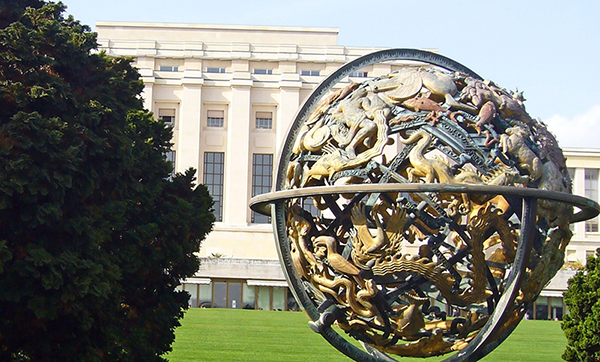Does certifying anti-bribery programmes add value?
Tue 04 Oct 2016
Earlier this month, on the eve of the publication of a new International Standard in bribery risk management, I joined a panel debate on the value of anti-bribery programme certification, hosted by Ethic Intelligence at the OECD in Paris.
The event was attended by a number of eminent counter-corruption experts and provided a rare opportunity to examine aspects of corruption usually addressed unilaterally, or otherwise left to academics.
The debate codified into two camps; those who viewed the ISO approach as unnecessary and those who, like me, believe a certifiable International Standard will add real value. My view may not surprise some as I Chair the British Standards Institution Anti-Bribery Committee and Head the UK delegation to the International Standards Organisation (ISO) creating the new International Standard – ISO 37001.
Currently, certifying bodies have created their own benchmarks often drawn from a wide range of anti-bribery best practice guidance issued by organisations such as the OECD, the International Chamber of Commerce and Transparency International, to name a few. Uniquely, in the UK organisations have the opportunity to be certificated against British Standard 10500, the Anti-Bribery Management System.
Some better certification programmes also draw from the experience of anti-bribery practitioners, bribery case law in different jurisdictions and descriptions of a ‘compliance defence’ incorporated into a growing number of national criminal codes.
This lack of consistency in certification benchmarking of anti-bribery programmes, particularly outside of the UK, makes it difficult for organisations to provide assurance to investors, regulators and other stakeholders that the organisation genuinely manages the risk across all of its operations.
It is my view that there is a need for a universally accepted benchmark against which certifications take place and the new ISO standard will provide this.
ISO Standards are respected across the globe because of their global reach and wide adoption. When the ISO governing body met recently in China, President Xi Jinping made this point; “With the deepening of economic globalization, standardization is playing an increasingly important role in facilitating business transactions, supporting industrial development, promoting scientific progress, and regulating social governance,” he said. “Standards have become the common language of the world.”
The committee that created ISO 37001 spent considerable time debating the issue of quality of certification, forming a sub-group to consider the issue and to ensure alignment with ISO’s own guidance on conformity testing. Organisations that adopt ISO 37001 may choose to have their anti-bribery programmes self-certified, peer-certified, certified by a third party or not certified at all.
In the end the success or otherwise of ISO 37001 will come down to two factors;
- the buy-in of an organisation to the concept of genuinely managing the risk of bribery occurring in its operations; and
- the quality of any certification process.
There is a direct correlation between free market economics and poverty reduction. Anything that reduces corruption, including bribery, and supports the free market is a benefit to society at large. The debate on the value of certifying anti-bribery programmes will, no doubt, continue. As an instrument of enhancing free markets, I look forward to ISO 37001 becoming adopted by organisations around the world, whether their anti-bribery programmes are certified or not.





